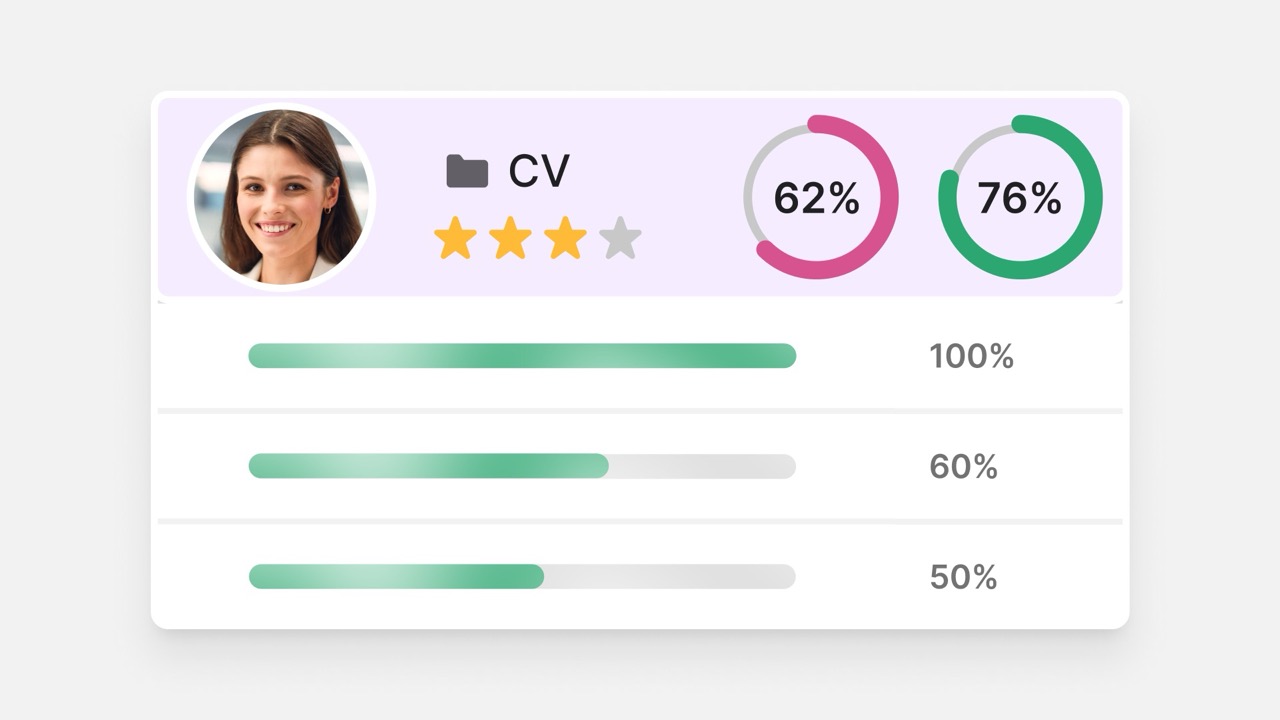2022 has been a challenging year for many business owners. We’ve seen turbulent market conditions, rising inflation, skills shortages, and an increased cost of living. These external factors have created a complicated business landscape.
Business owners across all industries are having to look closely at how they run their organizations and manage their people. For example, employee priorities have shifted. Cost of living expenses are soaring, with 38% of survey respondents saying inflation will impact their cost of living by more than 20%. As a result, employees are seeking more in compensation, flexibility, and benefits in an attempt to cut costs anywhere they can.
But what does this all mean for the next 12 months? What key HR trends for 2023 must business owners be aware of to best position their organization for success?
Top 5 UAE HR trends for 2023
1. Becoming employee-centric
The most successful businesses will be the ones that put their employees first. The employee experience is at the core of enabling business growth, which is why we’ll see more businesses invest in their employees’ work life.
This could be as simple as implementing hybrid working. The vast majority of UAE employees (90%) favor either a hybrid or fully remote working model, which many businesses have already recognized. Our data shows that 52% of UAE organizations now let their employees spend at least some of the working week at home, compared to just three years ago when 58% had strict office-only policies in place.
2023 will also see more employees making career decisions based on personal wellbeing and mental health provisions rather than financial incentives or superficial perks. Businesses need to adopt digital HR platforms that provide quick and easy access to vital mental health services such as confidential one-on-one sessions with certified therapists.
Ultimately, businesses must embrace a digital-first mindset as part of the journey towards employee-centricity. They must provide access to the technologies and solutions – such as mobile apps and cloud-based tools – that make employees’ lives easier and meet the level of personal support that employees are now looking for.
2. Reinforcing business resilience
It’s clear that instilling business resilience is more important than ever. Companies must be able to weather periods of disruption and build in the operational flexibility required to drive growth even in challenging market conditions.
This will continue throughout 2023, with business resilience generally being underpinned by three factors:
- Individuals: the ability to recruit, empower and engage key people
- Information: delivering accurate data for more effective decision making and compliance
- Integration: bringing data, systems and teams together to ensure greater visibility across the business
Taking a cloud-first approach can tick all these boxes, which is why we’ll increasingly see cloud-based technology at the core of digital HR strategies. As well as delivering more flexible resource availability and enhanced agility, the cloud also provides deeper insights into business operations – enabling executive teams to better understand, predict and react to potential issues before they happen.
Tackling inflation provides a perfect example. UAE companies have seen fuel reimbursement expenses increase by 38% throughout 2022, with the average amount per reimbursement increasing by 18%. With real-time insights into trends such as this, businesses will be able to understand their overheads at a more granular level – enabling them to adapt their policies and navigate tricky market conditions.
3. Taking an inside-out approach to culture
A massive 88% of the UAE workforce would consider leaving their jobs because of a poor organizational culture. This should ring alarm bells for UAE business leaders. In 2023, company culture will directly correlate to candidate attraction and employee retention, making it central to business success.
Business leaders must foster a positive working environment that gives employees opportunities to grow and develop. Modernizing performance management is one way to achieve this. Digitizing performance management – featuring personalized training and real-time performance reports – can help create a supportive and transparent environment that empowers employees to progress in their careers.
But this is just one part of the puzzle. The most effective way of building the right culture is by hearing from employees themselves. Getting feedback from your workforce will help you meet their expectations and align them with the company’s goals. This can be achieved through regular surveys that collect employees’ views – easily managed through digital platforms that streamline back-end processes, deliver automated reminders, and let employees respond via their smartphones.
With 70% of UAE companies planning to hire new employees in 2023, the competition will be more fierce than ever. Showcasing the culture that millennials and Gen Z employees are looking for will be crucial.
4. Accelerated HR automation

All employees want to be able to do their jobs quickly and efficiently. They don’t want or expect to be burdened with manual processes that don’t add any real business value, which is why implementing automation will be critical over the next 12 months.
Automation is continuing to play a greater role in successful business operations, offering many benefits to HR. For example, it enables self-service across an organization. Automating key processes enables employees to easily complete traditionally admin-heavy activities – related to reimbursements, paid leave, expenses etc. – themselves, driving productivity at a company-wide level.
At the same time, automation empowers HR teams to spend less time on manual tasks – such as insurance or payroll admin – by streamlining processes. Bayzat’s work life platform can even ensure compliance with bank specific payroll regulations such as WPS and sif files. This lets employees focus their efforts on strategies and initiatives that will have a tangible business impact. By removing the admin burden, HR teams will be empowered to take more of a people-focused approach and scale that work in a way that drives results.
5. The growth of AI analytics and reporting
With technology now playing such a key role in HR, being able to leverage the data generated from digital tools and platforms will become more important than ever in 2023. This will largely be driven by the ongoing rise of artificial intelligence. Having recently become the world’s first country to appoint a minister for AI and invested heavily in the technology, the UAE is being particularly bullish on AI’s potential.
As such, businesses should be prioritizing AI in their own HR strategies – such as by using it to improve consistency (58%), productivity (26%) and insights (16%). Taking things a step further, AI analytics can be used to identify emerging workforce trends or provide insights into the effectiveness of company-wide HR initiatives – both of which help HR teams move faster and improve decision making.
From an insurance perspective, AI analytics and reporting can uncover actionable intelligence that lets businesses understand how their policies are being used. They can then make better strategic decisions – such as replacing rarely used benefits with access to a specific service – to help cut costs while providing a superior employee experience.
Ultimately, 2023 will continue to present challenges for businesses but by focusing on the factors within your control, you can easily position yourself for growth. Download our “Shaping your 2023 Trends” guide for the actionable advice you can take to prepare yourself for 2023.








Get Social